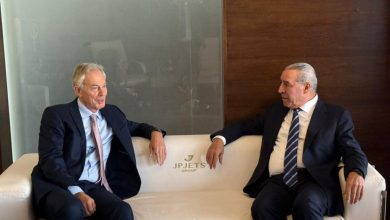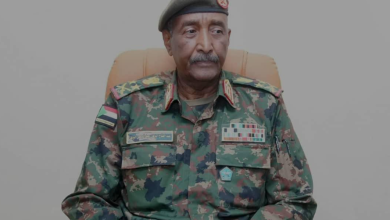
Israel killed Hezbollah’s top military commander in an airstrike in Beirut on Sunday, the Israeli military announced.
The strike is the first in months, amid escalating tensions between the Lebanese group and Israel in recent weeks. It also came days before the anniversary of the ceasefire that halted the fighting between Hezbollah and Israel.
Senior Leader Killed
The Israeli military announced on Sunday that it targeted Hezbollah’s Chief of Staff, Haytham Tabtabai, in an airstrike in the southern suburbs of Beirut (Dahiyeh).
“The (Israeli military) conducted a precise strike targeting a key Hezbollah terrorist in Beirut,” the Israeli military said in a statement. Later, it said that the strike eliminated Tabtabai, who “was responsible for managing combat against Israel and rebuilding Hezbollah’s readiness for future operations” during the Hezbollah-Israel war.
“The strike was intended to prevent the organization from further strengthening its capabilities and to deliver a precise blow to those who attempt to harm the State of Israel,” the Israeli Chief of Staff Eyal Zamir in a statement following the attack.
The Israeli Defense Minister, Israel Katz, said that Israel “will continue to act forcefully to prevent any threat to the residents of the north and the state of Israel.”
The Israeli Prime Minister, Benjamin Netanyhau, ordered the strike upon the recommendation of Katz and Zamir, his Office said in a statement.
Hezbollah Confirmation
Lebanon’s Health Ministry said that the Israeli airstrike in the Haret Hreik area in Beirut‘s southern suburbs – Hezbollah’s stronghold – killed 5 people and injured 25 others, without revealing their identities.
Later on, the Lebanese group acknowledged that the strike killed four of its fighters. It also confirmed in a statement the death of its Chief of Staff Tabtabai in “a treacherous Israeli attack” on the Haret Hreik area.
Speaking to reporters at the scene, the deputy chair of Hezbollah’s political council Mahmoud Qamati said that the group’s leadership is considering how to respond, warning that the Israeli attack “opens the door to an escalation of assaults all over Lebanon,” according to the Associated Press (AP).
Tabtabai had led Hezbollah’s elite Radwan Unit and was responsible for the Yemen file. In 2016, the US designated him as a terrorist for leading Hezbollah’s special forces in Syria and Yemen, offering a $5 million reward for information on him.
Lebanese Condemnation
Commenting on the attack, the Lebanese President, Joseph Aoun, condemned the strike, accusing Israel of violating the ceasefire agreement. He said that the attack is a “proof that it (Israel) does not heed the repeated calls to stop its aggressions against Lebanon.”
Moreover, Lebanon’s President urged the international community to assume its responsibilities and “intervene forcefully and seriously to stop the aggressions against Lebanon and its people,” Aoun said in a statement.
The Lebanese government vowed to disarm Hezbollah, approving a military plan to remove the group’s weapons by the end of the year. However, Hezbollah has refused to discuss the future of its weapons before Israel halts its attacks, fully withdraws from Lebanon, and releases Lebanese prisoners, according to BBC.
Hezbollah-Israel War
Following Hamas October 7, 2023 attack on southern Israel, Hezbollah started firing rockets towards northern Israel in support of the Palestinian group, resulting in an intensified fighting that led to an Israeli ground incursion into southern Lebanon.
The escalation between both sides have seen Israel eliminating most of Hezbollah’s senior commanders, including the group’s longtime leader, Hassan Nasrallah, who was killed in an airstrike in Beirut’s southern suburb on September 27, 2024.
On November 27, 2024, a ceasefire, brokered by the US and France, took effect between Hezbollah and Israel to end their 14-month fighting. The ceasefire required Hezbollah to end its armed presence in southern Lebanon and Israel to gradually withdraw its troops to the other side of the border, with additional Lebanese troops and UN Peacekeepers deployed in the south.
Hezbollah has not attacked Israel since the ceasefire took effect. However, it launched a couple of rockets in December on open territory near an Israeli military base as a “warning.”
Renewed Tensions
Israel is still occupying 5 hilltop points on Lebanese territories. Aoun expressed readiness to negotiate with Israel to stop its airstrikes and withdraw from these locations, underscoring Lebanon’s commitment to disarm all non-state actors, including Hezbollah.
Amid growing pressure from the US and Israel on Lebanon to disarm Hezbollah, the Israeli military has intensified its airstrikes in Beirut’s southern suburbs in recent weeks. Israel has accused Hezbollah of rebuilding its military capabilities. Meanwhile, the Lebanese government has denied these claims, saying that its army has been deployed to the south but needs more resources.
The latest Israeli airstrike on Beirut’s southern suburbs marks the fifth since the ceasefire and the first since June. It comes a week before Pope Leo XIV scheduled visit to Lebanon on his first foreign trip.






